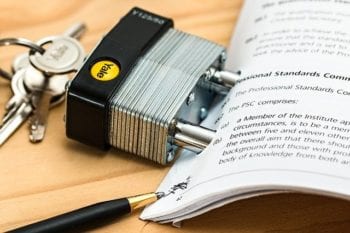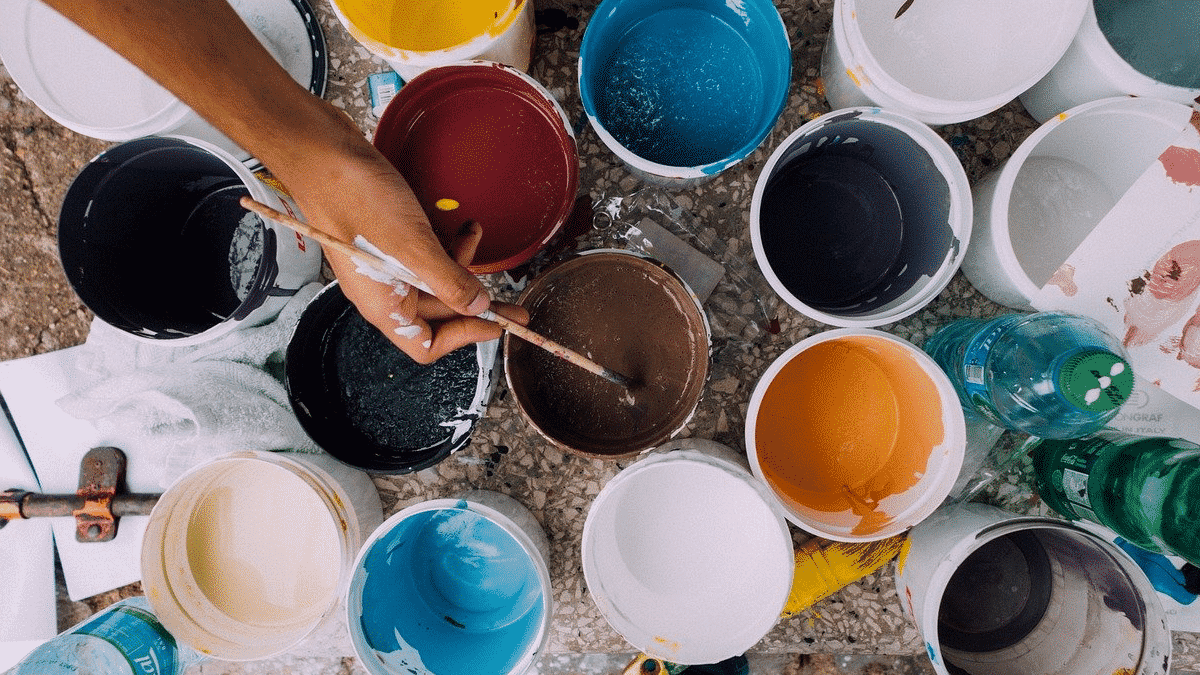5 Practical Things Artists Can Do Right Now
Ways to be productive, even if you can't create...

As much of the world goes into various levels of isolation due to the novel coronavirus, many people are finding themselves at home with relatively little to do.
For artists and creatives, this means a wide variety of things. Some are using the extra time as an opportunity to create new works and spend more time on their craft. Others are finding that their capacity to create is severely limited for one reason or another. It all depends on the type of artist and their specific situation.
However, for all types of creatives, the uncertain times and relative isolation is an opportunity to pick up a few important tasks that artists often neglect. Best of all, whether you’re a musician, artist, filmmaker, writer or photographer, these are all things that you can do right now.
So, no matter what type of creative you are, take a moment and look at some of the things that you can do right now to help you protect and support your work for a long, long time to come.
1: Register Your Copyrights

In the United States, you hold copyright in your work the moment it is fixed into a tangible medium of expression. However, if you want to file a lawsuit for copyright infringement you need a copyright registration and, if you want to collect the maximum amount of damages, you need to make that registration timely.
Though I am not a fan of the registration requirement, it is the law in the United States and, if you are a creator, you have to follow it.
With COVID-19, the Library of Congress buildings, including the U.S. Copyright Office, are closed. However, you can still register your works electronically, which is the way most artists would regardless of current events.
Unfortunately, the rates for registration just went up on March 20th, meaning that both simple and more complicated registrations are now $10 more expensive. Still, if you’re an artist that is looking for some way to use this time productively, getting caught up on your copyright registrations may be just the ticket.
2: Search for Your Work Online
If you post your work online, it’s worth taking a few minutes to look for it and see if and how it’s being shared or used.
Finding your work online is fairly straightforward. If you’re a writer, you can simply search for key phrases from your material and see where they pop up. Visual artists can use Google Image Search to look for duplicate images and audiovisual artists can look for the titles of their work as well as their names (if applicable).
While these searches can obviously be the first step in taking some sort of legal action to get infringing works removed, it doesn’t have to be. Many artists simply search for their work to see which are being shared more broadly or understand how people are interacting with/enjoying their creations.
Either way, a few quick searches can help you understand how others are using your work and, with that, you can make decisions about how (and if) you want to respond.
3: Seek Out Stock Contracts and Agreements
Many artists are caught flat-footed when they begin to work with others. Whether it’s collaborating with other creators, putting a piece up for consignment or creating a work for a third party client, when you work with others, it’s important to have agreements in writing.
If you’re working with a large client, they likely have their own agreements that are drafted by their lawyer. It’s important to review those agreements carefully, but at least there’s something in writing. When working with individuals or smaller clients, they may not have such a stock agreement.
As such, it’s important to get one of your own so that you have something at the ready. Are you a musician that collaborates with other musicians? It’s a good idea to have an agreement that outlines the nature of that collaboration. Are you a writer that does work for other websites? It’s important to have an agreement there.
What you want to avoid is a situation where there is no written agreement and courts could be asked to figure out what everyone intended based upon the actions of everyone involved. It’s a messy situation that rarely leaves everyone happy.
Take this opportunity to pull together some stock agreements for the most common kind of collaborations you do. Not only will it prevent headaches down the road, but it makes you seem much more professional.
4: Find a Lawyer or Reach Out to Yours
While you’re looking for those stock agreements, consider taking this as an opportunity to either find or reconnect with your lawyer.
Far too many artists find themselves in a situation where they only seek out legal counsel after a problem has arisen. On top of the stress of having to deal with the legal situation, whatever it may be, they have the stress of trying to find a lawyer.
For artists especially, lawyers should not people that you just seek out when you need one. They are people that you should have an ongoing relationship with, even if you rarely actually use them. Having a lawyer that can advise you on your specific situation and be available immediately when you need them is a great comfort.
I know from personal experience that having a lawyer is a great relief when legal threats come in (and they do). So, if you don’t have one, this is a good time to seek one out and have an initial consultation. They can be done remotely (and often are even without COVID-19) and are often provided for free or at a low cost. Think of it as a legal checkup and a chance to discuss any nagging concerns or questions you have.
If you have one, now is a good time to reach out to them. See if anything in your legal situation has changed, get help with those aforementioned contracts and agreements. Basically, this is an opportunity for many artists to do something that they likely have been putting off or ignoring.
5: Make a Plan for Your Work
Hopefully, through everything above, you’ve gotten a lot of good information. You’ve registered your work (to the best that it is practical), began to understand how it’s used, handled the legal side of things and now have a pretty good handle on your current position, both legally and professionally.
Where do you go from here? This means a lot of different things. Maybe a shift in your business model is in order. Maybe you need to do more to protect your work. Maybe you need to ease up on your control. Maybe you need to head in a new creative direction. Every situation and every creator is different.
Take this opportunity to do a bit of soul-searching and figure out what it is you want from your work and how it can best serve you both creatively and financially. Many artists get stuck in ruts because they keep doing the same thing and relying on the same approaches.
This is an opportunity to gather new information and reevalute. In drastic times, drastic changes become much easier and these are definitely drastic times.
Bottom Line
No matter what kind of creative you are, these trying times can be a chance to improve both your craft and your business. If you are able to create and it is helpful, that is wonderful. If not, there are other things that you can do to help yourself and your work in the long run.
It might seem cynical to use this time to take care of legal filings or meet up with an attorney, but these are important things that many artists neglect to do. For better or worse, now is a time many people are looking to pick up things they neglected as they find themselves with a lot of additional time on their hands.
As always, take care of your health first and foremost. This includes both your mental and physical health. However, if you’re looking for ways to use this time to the benefit of your art, these are just a few suggestions.
Want to Reuse or Republish this Content?
If you want to feature this article in your site, classroom or elsewhere, just let us know! We usually grant permission within 24 hours.
